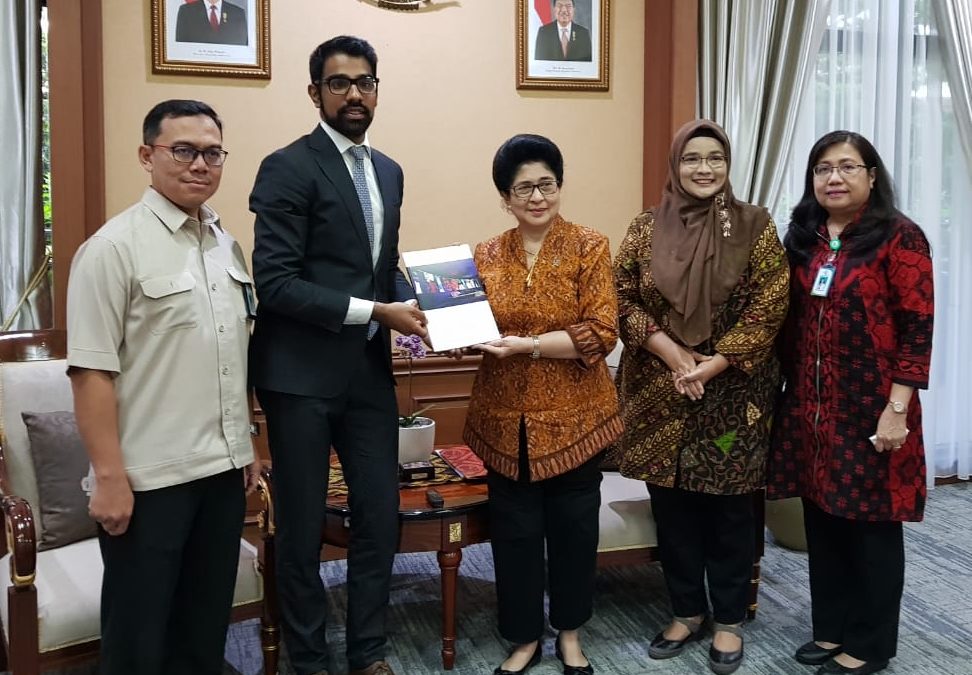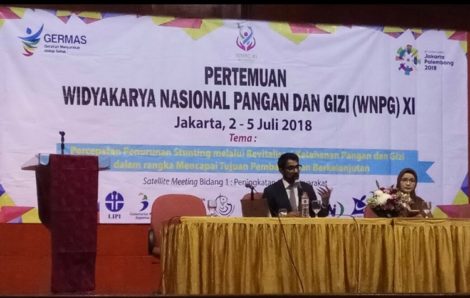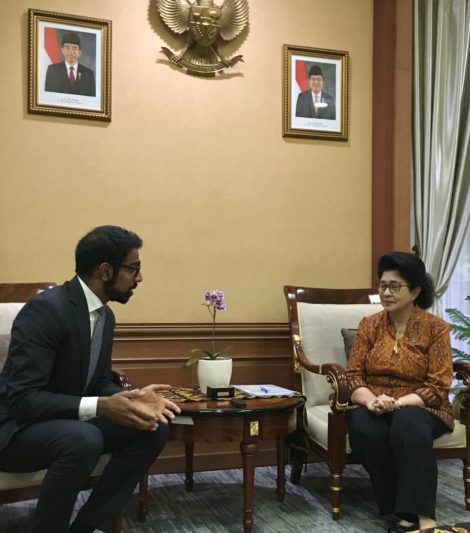
A policy brief written in collaboration with Chatham House and local stakeholders is feeding into the development of the Plan. EAT’s Policy Director Sudhvir Singh was honored to hand over the brief to H. E. Prof. Nila Moeloek, Indonesia’s Minister of Health, ahead of the National Workshop on Food and Nutrition in Jakarta.
The inaugural EAT Asia-Pacific Food Forum, held in collaboration with the Indonesian Ministry of Health in Jakarta in Oct. 2017, established an important platform to drive food system change in the Asia-Pacific region. The Forum initiated a growing movement around healthy and sustainable diets in Indonesia and EAT was delighted to continue the discussions with local government representatives at the National Workshop on Food and Nutrition (Widyakarya Nasional Pangan dan Gizi (WNPG)) in Jakarta.

WNPG is organized every fourth year by the Indonesian Institute of Sciences with support from the Government. The workshop focuses on science and technology within the sectors of food and nutrition, as well as the development of specific solutions to achieve food and nutrition security.
This year, the Workshop specifically focused on “decreasing stunting through the revitalization of food and nutrition security to achieve the Sustainable Development Goals”.
The Workshop is an important part of the preparations for developing the next 5-year National Development Plan (2020 – 2025) and formulated cross-cutting food and nutrition policies and strategies to reduce stunting, to be included in the Plan. “EAT is honored to have been offered to contribute to these policies and strategies”, says Sudhvir Singh, EAT’s Policy Director.
EAT’s contribution will be based on a policy brief developed in collaboration with the Hoffman Centre for Sustainable Resource Economy at Chatham House and local partners.
The brief emphasizes priority areas for shifting to healthy and sustainable dietary patterns in Indonesia, including 1) mainstreaming dietary guidelines into all sectors, 2) aligning policies across government sectors, and 3) scaling local innovations.
EAT had the honor of handing over the brief to the Minister of Health of the Government of Indonesia, H.E. Prof. Nila Moeloek, who strongly supported this work. The Director of Nutrition of the Ministry of Health, Pak Doddy Izwardi, has co-signed the policy brief.
A final version of the brief will be published on EAT’s webpage shortly, including input from the Workshop. The brief will also be translated to Bahasa Indonesia and disseminated to relevant stakeholders in the country.
EAT is excited to observe the growing engagement and interest around the food system agenda in Indonesia and look forward to working further with local partners to help advance healthy and sustainable dietary patterns.
